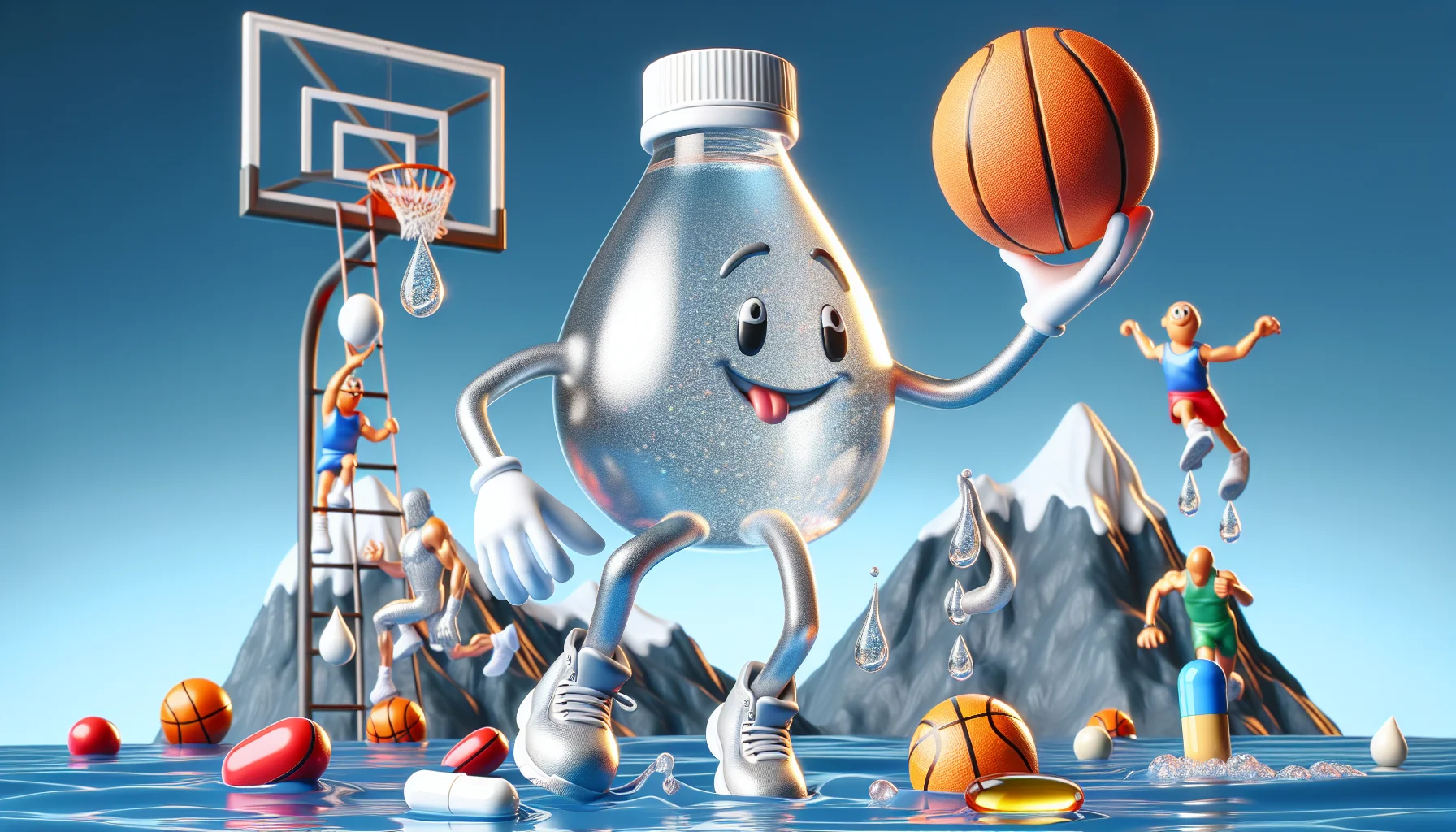Liquid magnesium glycinate Quiz
Test Your Knowledge
Question of
The Importance of Liquid Magnesium Glycinate for Athletes
Magnesium plays a pivotal role in sports performance, serving as a crucial mineral that supports over 300 biochemical reactions in the body. For athletes, the benefits of magnesium, particularly in the form of liquid magnesium glycinate, are manifold. This form of magnesium is known for its superior absorption rates and bioavailability, making it an excellent choice for those looking to enhance their athletic performance. Magnesium aids in muscle function, helping to prevent cramps and spasms, and it's vital for energy production, converting glucose into energy that fuels muscles during intense activities. Additionally, magnesium contributes to electrolyte balance, which is essential for maintaining hydration levels and preventing fatigue. By ensuring adequate magnesium levels, athletes can improve their endurance, strength, and recovery times, making liquid magnesium glycinate a valuable supplement in any sports nutrition regimen.
What is Liquid Magnesium Glycinate?
Liquid Magnesium Glycinate is a form of the mineral magnesium that is bound to glycine, an amino acid. This combination is believed to enhance the absorption of magnesium in the body, making it more bioavailable than other forms of magnesium supplements. Magnesium is a crucial mineral that plays a vital role in numerous bodily functions, including muscle and nerve function, blood sugar levels, and blood pressure regulation. The liquid form of magnesium glycinate is often preferred for its ease of digestion and ability to be absorbed quickly by the body. It is particularly beneficial for individuals who have difficulty swallowing pills or who experience gastrointestinal issues with other forms of magnesium. Moreover, magnesium glycinate is known for its calming effects on the brain and body, making it a popular choice for those looking to reduce stress, improve sleep quality, and support overall mental and physical health.
How Liquid Magnesium Glycinate Enhances Athletic Performance
- Improves muscle function and reduces cramping by regulating muscle contractions and relaxation.
- Enhances energy production by activating ATP, the energy molecule, helping athletes perform better and longer.
- Supports electrolyte balance, crucial for preventing muscle cramps and fatigue during intense physical activity.
- Speeds up recovery by reducing muscle soreness and inflammation, allowing for quicker recovery times between training sessions.
- Improves sleep quality, essential for muscle repair and recovery, by regulating neurotransmitters involved in the sleep cycle.
- Supports bone health by aiding in the absorption and metabolism of calcium, which is vital for strong bones.
- Reduces stress and anxiety, which can negatively impact athletic performance, by regulating neurotransmitters that control mood.
Comparing Liquid Magnesium Glycinate with Other Forms of Magnesium
| Type of Magnesium | Absorption Rate | Benefits | Side Effects |
|---|---|---|---|
| Liquid Magnesium Glycinate | High | Supports muscle and nerve function, regulates blood sugar levels and blood pressure, improves sleep quality | Less likely to cause digestive issues |
| Magnesium Oxide | Low | Often used to treat migraines and constipation | May cause cramping and diarrhea |
| Magnesium Citrate | Medium to High | Can improve digestion, relieve constipation, and is easily absorbed | Can cause diarrhea and abdominal discomfort at high doses |
| Magnesium Chloride | Medium | Used in supplements and topical applications, may improve skin health and aid in detoxification | May cause skin irritation when used topically |
| Magnesium Sulfate | Varies | Commonly used in baths (Epsom salt) for muscle relaxation and recovery | Excessive use can lead to magnesium overdose, with symptoms including nausea, diarrhea, lethargy, muscle weakness, and irregular heartbeat |
Optimal Dosage and Timing for Liquid Magnesium Glycinate
For athletes looking to optimize their magnesium levels, the recommended dosage of liquid magnesium glycinate typically ranges between 200 mg to 400 mg per day, depending on individual needs and dietary magnesium intake. It is best taken in the evening or before bedtime to enhance absorption and support muscle recovery and relaxation during sleep. However, it's important to consult with a healthcare professional to tailor the dosage to your specific health profile and athletic requirements.
Incorporating Liquid Magnesium Glycinate into Your Diet
- Start your day by adding a dose of liquid magnesium glycinate to your morning smoothie or juice to help with muscle function throughout the day.
- Incorporate it into your pre-workout routine by mixing it with water or your favorite sports drink to enhance endurance and reduce muscle cramps.
- Add liquid magnesium glycinate to your post-workout recovery shake to aid in muscle recovery and reduce soreness.
- Consider taking your magnesium supplement in the evening, mixed with a small amount of water or herbal tea, to support muscle relaxation and improve sleep quality.
- Mix it into your hydration bottle and sip throughout the day to maintain magnesium levels, especially important for athletes who sweat a lot during intense training sessions.
Real Athlete Experiences with Liquid Magnesium Glycinate
Many athletes have reported positive outcomes from incorporating liquid magnesium glycinate into their nutrition and recovery routines. Commonly, athletes highlight significant improvements in their performance, attributing this to the supplement's role in enhancing muscle function and energy production. Additionally, a notable number of users have experienced accelerated recovery times post-exercise, which they associate with magnesium's ability to reduce muscle cramps and soreness. The ease of absorption and the calming effect on the nervous system are also frequently mentioned benefits, helping athletes to maintain a better sleep cycle and overall well-being. These testimonials underscore liquid magnesium glycinate as a beneficial supplement for athletes looking to optimize their physical performance and recovery processes.












